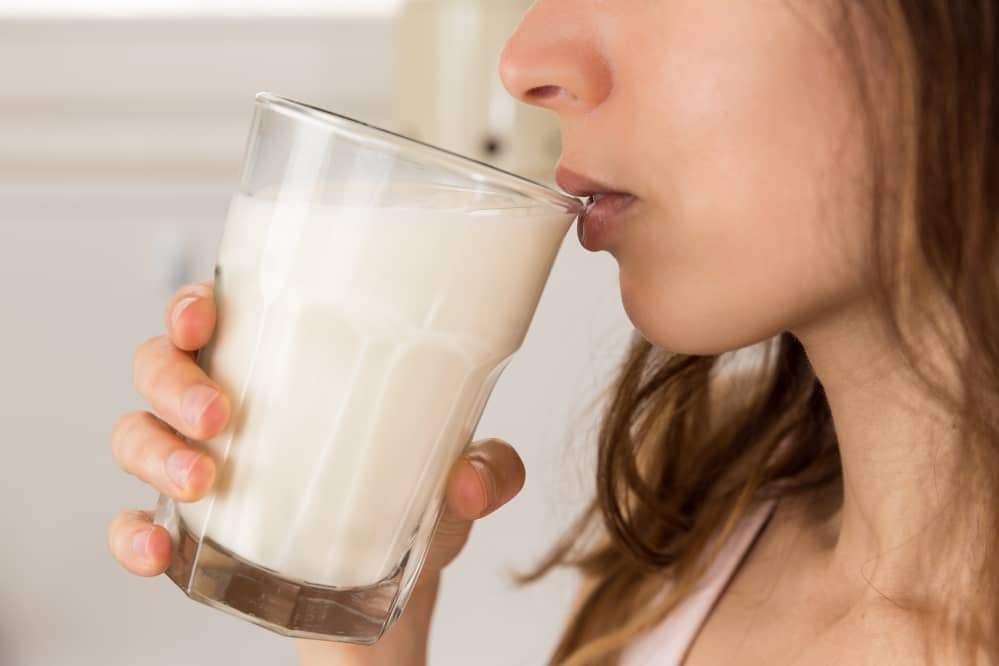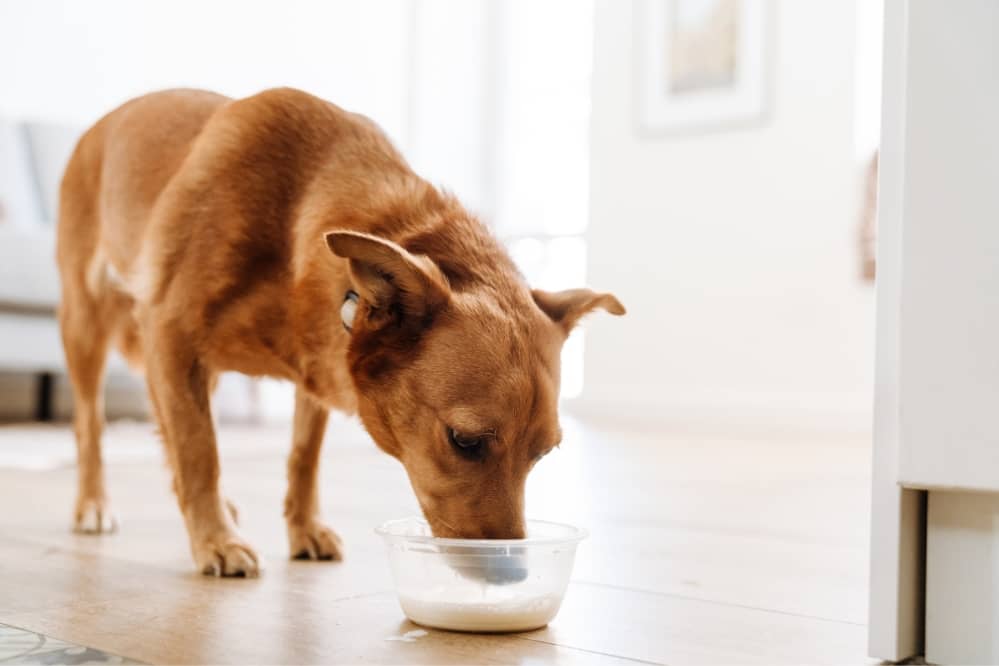Milk is an incredibly common household ingredient, almost everyone has a carton of milk or two in the refrigerator. After a couple of weeks, milk spoils and starts giving off an all-too-familiar sour scent that lets you know it is time to throw it out. However, what if your dog gets into your trash or accesses spoiled milk in some other way and drinks it? In this article, we’ll discuss what will happen if your dog drinks spoiled milk and what you should do as a pet owner.
Are Dogs Allergic to Milk?
The first question you may have is whether or not dogs can drink milk, spoiled or otherwise.
Typically, a sip or two of milk is harmless to dogs. However, it should be avoided and not given to dogs in large portions. Interestingly, dairy is one of the most common dog food allergens. If your dog is allergic to dairy and ingests milk, they may show typical signs of an allergic reaction like itching. In these cases, ingesting milk may lead to more serious health conditions including anaphylactic shock which can be fatal.
However, actual dairy allergies are rare in dogs. It is thought that only 0.2% of all dogs suffer from food allergies. Though, if your dog does suffer from food allergies, they are likely allergic to dairy. Even if your dog isn’t allergic to dairy, they may still have an adverse reaction to it if ingested. It is much more likely that your dog has an intolerance to dairy rather than an allergy.
Many dogs, like humans, are lactose intolerant. This means that their digestive system is not equipped to process dairy. A key component of dairy is the sugar, lactose. Lactose is very prevalent in dairy milk, accounting for 2-8% of its makeup. When the digestive system encounters lactose, it breaks it down with a specialised enzyme: lactase. Lactase breaks down lactose into smaller components, glucose, and galactose, which your digestive system can handle. If lactase does not break down lactose, your digestive system will not be able to properly handle it. This leads to a reaction often including nausea, vomiting, and diarrhoea. This reaction to lactose, when there is not enough lactase to break it down, is commonly known as lactose intolerance. Surprisingly, most of the human population is lactose intolerant – around 65% globally. This means that most people have a natural deficiency of lactase and can not properly digest lactose. Dairy products high in lactose, prominently including milk, often trigger an adverse reaction in these people if ingested. The same is true for dogs!
Are All Dogs Lactose Intolerant?
While there is not a true consensus on how many dogs are lactose intolerant, it is widely agreed upon that most dogs do not digest lactose well. Plus, dogs seem to get more intolerant to lactose as they age. As dogs get older, their bodies tend to produce less and less lactase, making them more and more intolerant to lactose. The reasoning for this is likely due to a reduced need for milk. As puppies, milk plays a very important role in a dog’s diet. Like humans, dogs feed from their mothers when they are in their infancy. When they are puppies, dogs need to be able to digest milk to properly grow. So, their bodies produce a lot of lactase.
However, puppies wean off of their mother’s milk and onto solid foods when they are around 7-10 weeks of age. At this point, it is no longer necessary for puppies to drink milk to meet their nutritional requirements. As such, it is no longer necessary for their bodies to produce lactase in large amounts. The amount of lactase produced gradually declines over time, which leads to a growing intolerance to dairy as a dog grows. This results in a lot of lactose-intolerant dogs, especially older dogs. If a dog ingests dairy, it will likely experience similar symptoms as a lactose-intolerant human. These symptoms are primarily digestive, commonly nausea, vomiting, and diarrhoea.
What Should You Do if Your Dog Drinks Spoiled Milk?
Though we have discussed why dogs should not drink milk in general, the question of what to do if a dog drinks spoiled milk remains. Firstly, it is important to understand what spoiled milk is to understand the potential risks it poses to dogs if ingested.
Milk naturally contains various bacteria that are safe to consume for a little while. However, after some time, the bacteria overgrows which can make them unsafe to consume. Milk that is sold undergoes processing to kill as much bacteria as possible. This processing typically involves pasteurisation, homogenisation, and separation. All of these techniques reduce the bacteria as much as possible, but there is inevitably some left behind. These bacteria reproduce and, over time, grow to numbers that are no longer safe for consumption. You can usually tell if your milk is spoiled by its appearance and smell. Spoiled milk will smell sour and often contains chunks

Just like if a human were to consume spoiled milk, a dog is at risk of developing bacterial diseases if it ingests spoiled milk. The most common diseases from spoiled milk are E. Coli and Salmonella, both of which can cause a lot of discomfort and gastric problems. The most common symptoms of these diseases are vomiting, diarrhoea, nausea, constipation, and abdominal pain. If your dog has consumed spoiled milk, make sure to watch its behaviour closely. If your dog only experiences a single episode of vomiting or diarrhoea, or their symptoms seem to alleviate after some time, you do not need to seek veterinary care. Make sure to provide your dog with plenty of water, extra bathroom breaks, and lots of love. If the symptoms do not subside or your dog is repeatedly vomiting or experiencing diarrhoea, you should visit your veterinarian.

